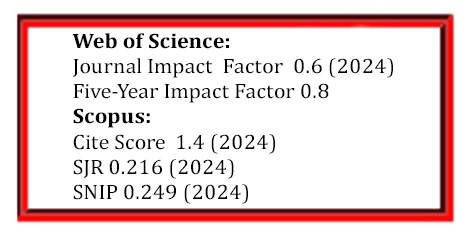Mechanical Properties and a Physical-Chemical Analysis of Acetate Yarns
Keywords:
cellulose acetate, yarn, mechanical properties, stress relaxation, Maxwell model, friction, degree of polymerization.Abstract
Cellulose acetate used in the manufacture of acetate yarns is commonly obtained from cotton-linters or wood-pulp cellulose. Varying in the origin and in the manufacturer, cellulose acetate often differs in its processability. The paper belongs to the investigation the properties of acetate yarns manufactured of the cellulose acetate varied in its origin and manufactured by different suppliers. Mechanical properties (including stress relaxation and frictional behaviour) of acetate multifilament yarns as well as physical-chemical properties of acetate fibre substance are investigated. Regular discrete relaxation time spectrum of acetate yarns is determined using the generalized Maxwell model. Experiments showed that the origin of cellulose acetate does not have great influence on mechanical properties of the acetate yarns, however, the yarn manufactured from wood-pulp-originated cellulose acetate have little advantage against others in strength and extensibility, and also are more uniform in the properties. Physical-chemical analysis revealed that the fibre of wood-pulp-originated cellulose acetate has a higher degree of polymerization and a little higher amount of low-molecular mass fractions. Surface friction of the yarns lubricated with different lubricants is also investigated.
Downloads
Published
Issue
Section
License
The copyrights for articles in this journal are retained by the author(s), with first publication rights granted to the journal. By virtue of their appearance in this open-access journal, articles are free to use with proper attribution in educational and other non-commercial settings.



